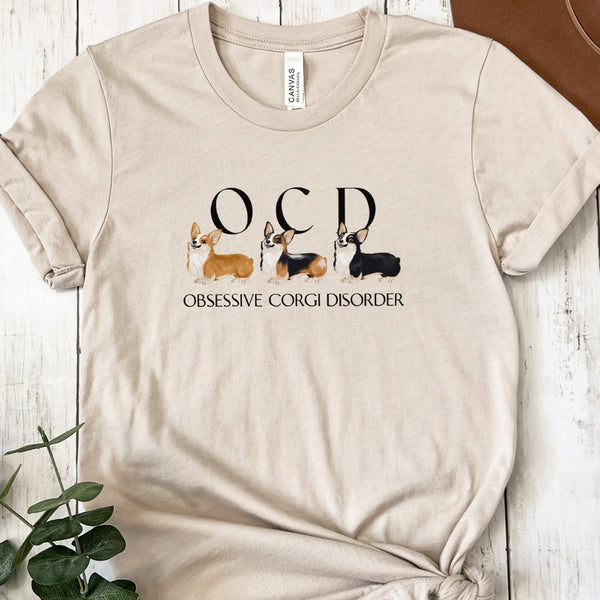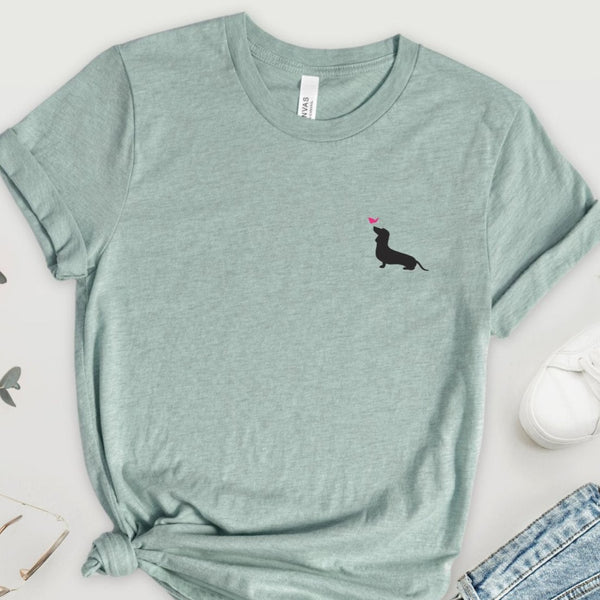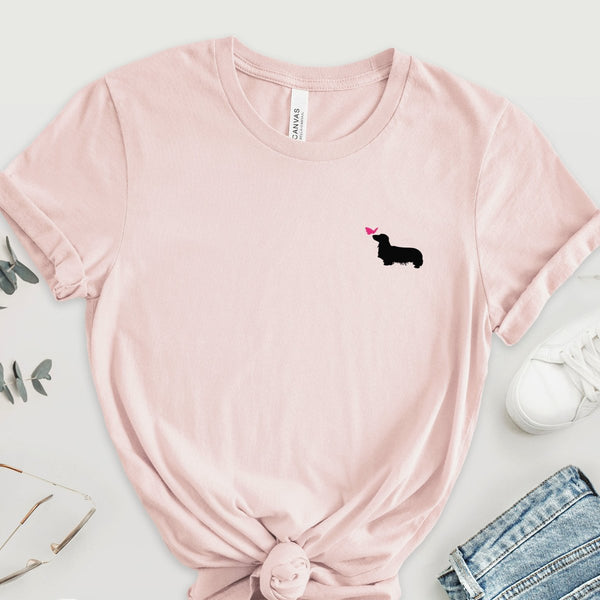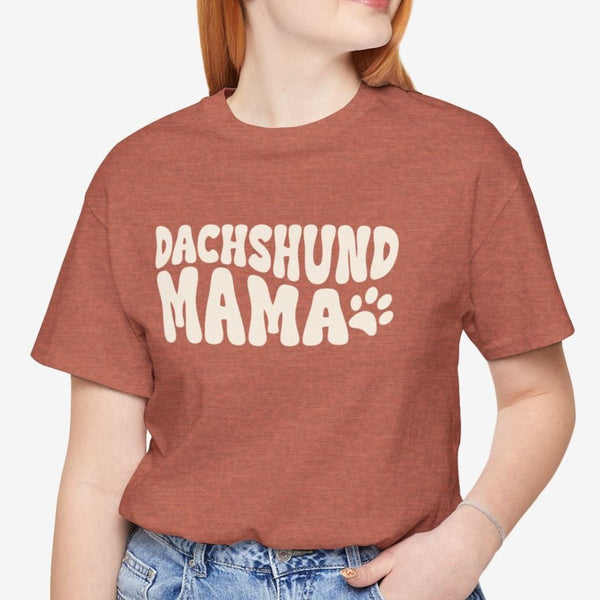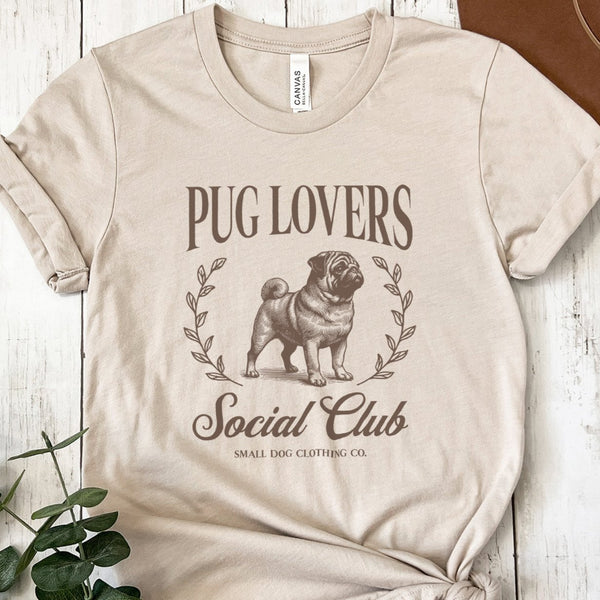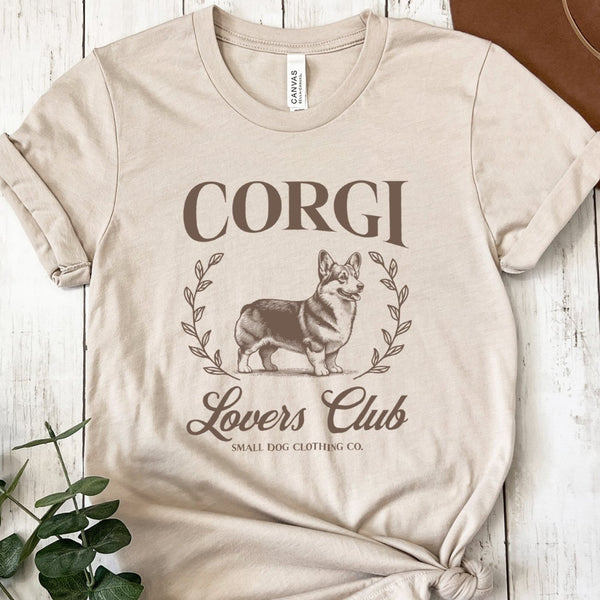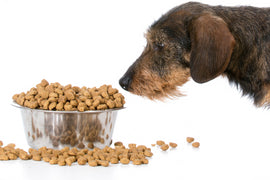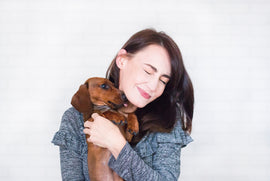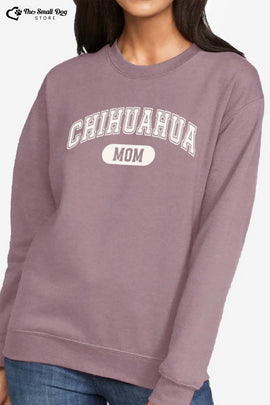Miniature Poodle vs Bichon Frise: Unraveling the Differences
Posted by ROBERTO BURALLI
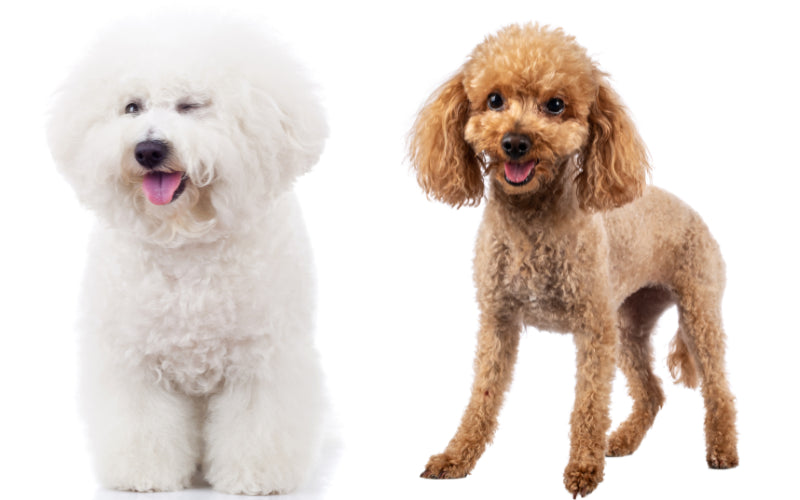
If you're a dog owner or enthusiast and find yourself wondering whether your adorable furry companion is a Bichon Frise or a Miniature Poodle, you're not alone. These two breeds share some similarities, but with a little knowledge, you can easily distinguish between them.
When it comes to small, curly-haired companions, the Miniature Poodle and Bichon Frise are two breeds that often spark comparisons. While they share some similarities in appearance, these two pups have distinct traits that set them apart. In this article, we'll delve into the key differences between these two beloved breeds, helping you decide which one might be the perfect fit for your lifestyle.
Physical Attributes: Size and Coat Contrasts
Size Matters
One of the most noticeable differences between the Miniature Poodle and Bichon Frise lies in their size:
- Miniature Poodle: Typically weighing between 10-15 pounds and standing around 11-15 inches tall.
- Bichon Frise: Even more petite, weighing only 7-12 pounds and reaching a height of 9-12 inches.
Coat Comparison
The coat is another key distinguishing factor:
- Bichon Frise: Thick, curly double coat, usually white, but can also have patches of cream, apricot, or buff. Requires frequent grooming and daily brushing to prevent tangles.
- Miniature Poodle: Curly coat that comes in several colors, including brown, black, white, apricot, and silver. Needs regular brushing and professional haircuts to maintain their signature style.
To differentiate between the two breeds, observe their coats carefully. The Bichon's coat is thick, curly, and predominantly white, while the Miniature Poodle's coat is thinner and can display various colors. Bichons also feature round faces with dark eyes, whereas Poodles have longer faces and lighter eyes.
Grooming Needs
- Miniature Poodles: Require more extensive grooming due to their continuously growing coat, including regular brushing, bathing, and clipping or shaving to prevent matting.
- Bichon Frises: Require moderate grooming, but their coat is generally easier to maintain with regular brushing and trimming.
Related Post: Are Bichon Frises Always White?

Temperament and Energy Levels
Miniature Poodles: Energetic and Eager to Please
- Known for their high energy levels and eagerness to please their owners.
- Thrive on physical and mental stimulation, requiring at least an hour of exercise daily.
- Highly social and can become anxious if left alone for extended periods.
Bichon Frises: Playful and Adaptable
- More laid-back compared to their Poodle counterparts.
- Adaptable to various lifestyles, including apartment living.
- Require regular exercise and socialization to prevent boredom and separation anxiety.
- Known for their independent nature, which can make training a bit more challenging.
Training and Socialization
Both breeds are intelligent and trainable, but their approaches differ slightly:
- Miniature Poodles: Highly responsive to training due to their desire to please and high energy levels. Excellent candidates for obedience training and various dog sports.
- Bichon Frises: Trainable but may require more patience and consistency due to their independent streaks.
Early socialization and exposure to new environments, people, and experiences are beneficial for both breeds. Poodles may require more socialization efforts to prevent anxiety and excessive barking, while Bichon Frises are generally more adaptable to new situations with proper training.
Related Post: Understanding the Behavior of Bichon Frise Dogs

Temperament and Energy Levels: Lively vs Laid-Back
Poodles
Energetic and Eager to Please Miniature Poodles are known for their high energy levels and eagerness to please their owners. These intelligent and athletic dogs thrive on physical and mental stimulation, requiring at least an hour of exercise daily, split into multiple sessions.
They are highly social and can become anxious if left alone for extended periods, making them ideal companions for active families or individuals who can provide ample attention and engagement.
Bichon Frises
Playful and Adaptable While Bichon Frises are also playful and affectionate, they tend to be more laid-back compared to their Poodle counterparts. They are adaptable to various lifestyles, including apartment living, but still require regular exercise and socialization to prevent boredom and separation anxiety.
Bichon Frises are also known for their independent nature, which can make training a bit more challenging compared to the highly trainable Poodle.

Lifestyle Compatibility: Finding the Right Fit
- Miniature Poodles: Well-suited for active individuals or families who can provide ample exercise, mental stimulation, and companionship. Thrive in environments where they can engage in various activities and receive plenty of attention.
- Bichon Frises: Better suited for households where they will not be left alone for extended periods. Adaptable to apartment living but still require regular exercise and socialization to prevent boredom and behavioral issues.

Conclusion: Choosing the Perfect Curly Companion
While the Miniature Poodle and Bichon Frise share some similarities in appearance, their differences in size, coat, energy levels, and temperament make them distinct breeds with unique personalities. Whether you're seeking an energetic and highly trainable companion or a more laid-back and adaptable furry friend, understanding these key differences will help you make an informed decision when choosing your next curly-haired companion.
SHARE:





